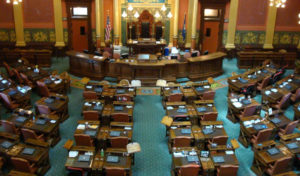If we have a quick glance at how online poker fares in the old world, and Europe in particular, we will see plenty of controversies. And it all smacks of the experience we have here at home. Nearly five years ago, the EU Commission ordered Sweden to reshuffle its gambling laws, which were not yet aligned with European legislation. In the ensuing legal battle, Sweden finally came to the table and as a result, we will see a more liberal gambling market in January 1, 2019, .
As a result, the only licensed operator in Sweden, Svenska Spel will have to concede market share to foreign operators. Meanwhile, because of breaches in the legal framework up until the vote for the new law took place, well-established names in the industry had been allowed to operate on the fringes without risking legal reprimand of any sort. Those operators included PokerStars, PartyPoker, 888 and Unibet.
What Brought Us Here?
The first major change is the breaking-up of the monopoly Sweden has exercised through Svenska Spel. Starting August 1, foreign companies will be able to apply for gambling licenses that comply with local legislation.
Much was necessary for the change to finally take place. The legal bickering began as early as 2014, following a failure on the behalf of Sweden to comply with EU law and triggering normal court proceedings thereafter.
The main issues outlined by the commission didn’t have to do with the monopoly of Svenska Spel, so much as they had to do with the inefficiency of the overall system and a failure to address more serious social issues, such as problem gambling, for example and any criminal activities that may ensure from an unregulated market.
Svenska Spel – A Credit to Their Name
Even though the climate is going to get less hospitable for the local behemoth, Svenska Spel is still very much happy with the proposed changes. According to the company’s CEO Lennart Käll, the change is a positive thing as it would finally address the issue with offshore operators.
According to Käll, the country is now going to have a genuine gambling as opposed to the “wild west” of illegal operators he has been so firmly opposed against. Meanwhile, the EU Commission has elaborated on why it had pursued Sweden to enact the desired changes.
What happens in Sweden is a reflection on the overall stance the EU is taking on gambling. More specifically, with the newly-introduced changes, Sweden’s legislation is now aligned with the Treaty for European Union (TFEU) whereby all EU Member States must provide a common market for their goods and services.
Meanwhile, the EU Commission has not quite dropped its efforts to pursue other EU Member States. A number of countries has also been targeted by the infringement proceedings as early as November 2013. These Member States include Belgium, Cyprus, the Czech Republic, Lithuania, Poland, and Romania.
While things with the legalization of online poker and other activities in the United States may not be exactly easy, it’s certainly not an iota less contentious in other parts of the world either.







